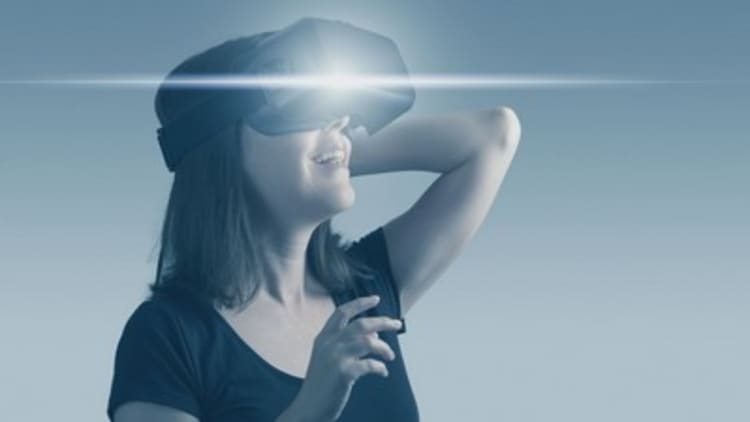


Google, Facebook, Samsung and Microsoft all have products in the virtual reality space, but they are barely scratching the surface of the fledgling VR industry.
In fact, the virtual and augmented reality market could become an $80 billion industry by 2025, with reaches far beyond gaming and entertainment, according to Goldman Sachs analyst Heather Bellini.
In a research note released Wednesday, Goldman predicted that the industry could pull in $45 billion in hardware revenue and $35 billion in software by then. By comparison, the current hardware markets for notebooks is at $111 billion and the video game console market is at $14 billion, Goldman estimates.
"It's really going to change, I think, many aspects of our life and be completely disruptive," Bellini told CNBC's "Squawk Alley" on Wednesday. "2016 isn't going to be the year we see all of this play out, but certainly over the next 10 years, it's going to take off."
Gaming and entertainment will drive much of the growth, but car makers, retailers and even interior designers could bank on VR technology, Goldman said.
"If you work with an interior designer for your house, you're going to be able to envision what that piece of furniture or what that tile might look like in your house before it actually ever gets installed," Bellini said.
Google's Cardboard, which costs about $20, helped introduce VR to Main Street consumers. Google also opened its first dedicated VR unit this week.
Consumers seem to be ready for VR. Samsung's $99 Gear VR Powered by Oculus sold out on Amazon during the holiday season — in two days.
The burgeoning industry, however, is not without challenges. Bellini cited several technological obstacles that VR needs to hurdle before hitting the mainstream, such as better battery life and faster wireless connections.
"All of that will happen," she told CNBC. "Moore's law never disappoints, in a sense. And it's kind of the same thing here."






